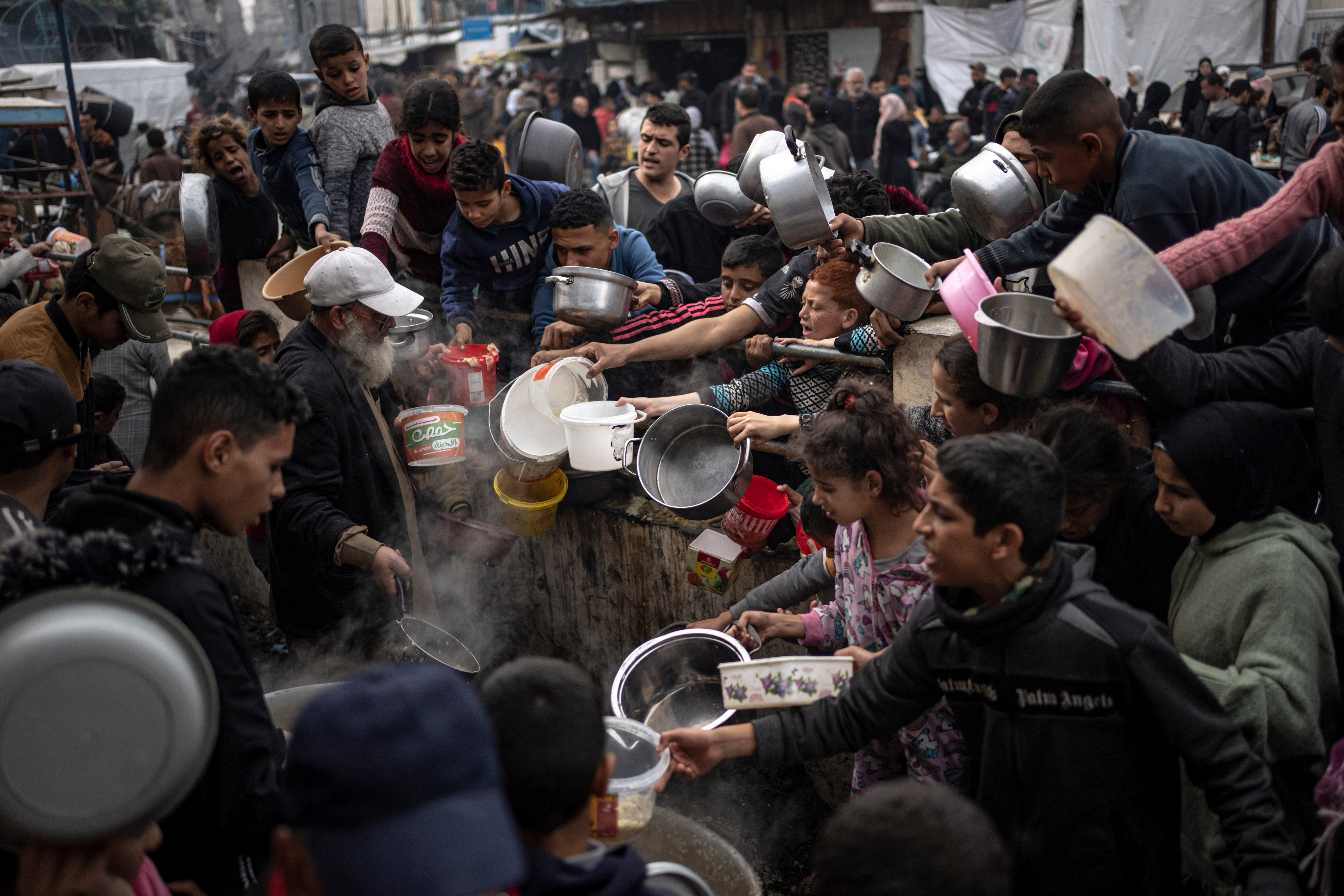UN appeals for $2.8 billion to help 3 million Palestinians in desperate need of food and other aid
The United Nations is appealing for $2.8 billion to provide desperately needed aid to 3 million Palestinians, stressing that tackling looming famine in war-torn Gaza requires not only food but sanitation, water and health facilities

Your support helps us to tell the story
From reproductive rights to climate change to Big Tech, The Independent is on the ground when the story is developing. Whether it's investigating the financials of Elon Musk's pro-Trump PAC or producing our latest documentary, 'The A Word', which shines a light on the American women fighting for reproductive rights, we know how important it is to parse out the facts from the messaging.
At such a critical moment in US history, we need reporters on the ground. Your donation allows us to keep sending journalists to speak to both sides of the story.
The Independent is trusted by Americans across the entire political spectrum. And unlike many other quality news outlets, we choose not to lock Americans out of our reporting and analysis with paywalls. We believe quality journalism should be available to everyone, paid for by those who can afford it.
Your support makes all the difference.The United Nations appealed for $2.8 billion on Tuesday to provide desperately needed aid to 3 million Palestinians, stressing that tackling looming famine in war-torn Gaza requires not only food but sanitation, water and health facilities.
Andrea De Domenico, the head of the U.N. humanitarian office for Gaza and the West Bank, told reporters that “massive operations” are required to restore those services and meet minimum standards — and this can’t be done during military operations.
He pointed to the destruction of hospitals, water and sanitation facilities, homes, roads and schools, adding that “there is not a single university that is standing in Gaza.”
De Domenico said Israel's recently-ended second major military operation at Shifa Hospital, Gaza's largest medical facility, was so destructive the facility has been forced to shut down. As an example, he questioned what the military objective was in shooting an MRI scanner that examines parts of the body and can detect cancers.
He said his team has been dealing with “a scene of terror” at the hospital, with U.N. and Palestinian colleagues helping people try to recognize family members from shoes or clothes on “the remnants of corpses.”
Israel promised to open more border crossings into Gaza and increase the flow of aid into Gaza after its drone strikes killed seven aid workers from the World Central Kitchen who were delivering food into the territory on April 1.
The killings were condemned by Israel’s closest allies and heightened criticism of Israel’s conduct in the 6-month-old war with Hamas, sparked by the extremist group's surprise attack in southern Israel that killed about 1,200 people and led some 250 others to be taken hostage. The Israeli offensive in Gaza aimed at destroying Hamas has caused widespread devastation and killed over 33,800 people, according to local health officials.
De Domenico said there are signs of Israel’s “good intention” to get more humanitarian assistance into Gaza, citing the opening of a crossing to the north, which faces the most serious threat of famine, and the opening of bakeries there.
But the U.N. keeps pushing Israel to do more, he said.
De Domenico pointed to Israeli denials and delays on U.N. requests for aid convoys to enter Gaza.
He said 41% of U.N. requests that required going through Israeli checkpoints were denied during the week from April 6-12, and last week a convoy from the U.N. children’s agency UNICEF and the U.N. World Food Program was caught in crossfire in an area that was supposed to be safe.
De Domenico said convoys often spend hours at checkpoints and are only cleared in the afternoon, too late to make deliveries and return safely in daylight hours. He said the Israelis know this is how the U.N. operates, and delays allow them to say “we’re not blindly denying you” while controlling what happens.
“We continue to engage with them and our objective is really to solve the issue and deliver aid,” he said.
According to the international community’s authority on determining the severity of hunger crises, famine is imminent in northern Gaza where 70% of people are experiencing catastrophic hunger. And its recent report warned that escalating the war could push half of Gaza’s 2.3 million people to the brink of starvation.
De Domenico said the U.N. appeal was scaled back from $4 billion because of difficulties in getting aid into Gaza — and most importantly getting it to the people who need it most.
He said 90% of the $2.8 billion being sought for the rest of the year is for Gaza and 10% is for the West Bank, which has seen an upsurge in violence and settler attacks.